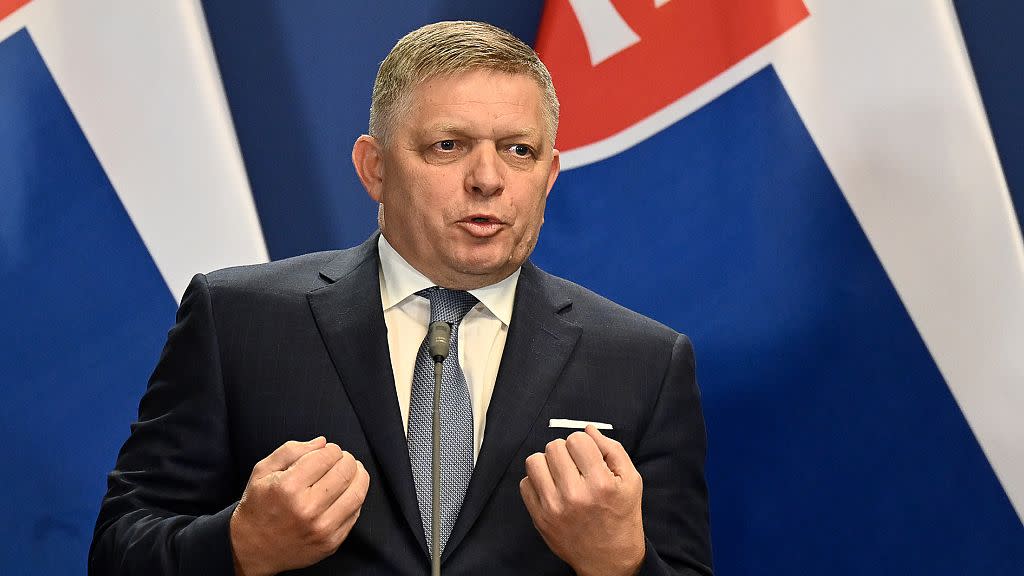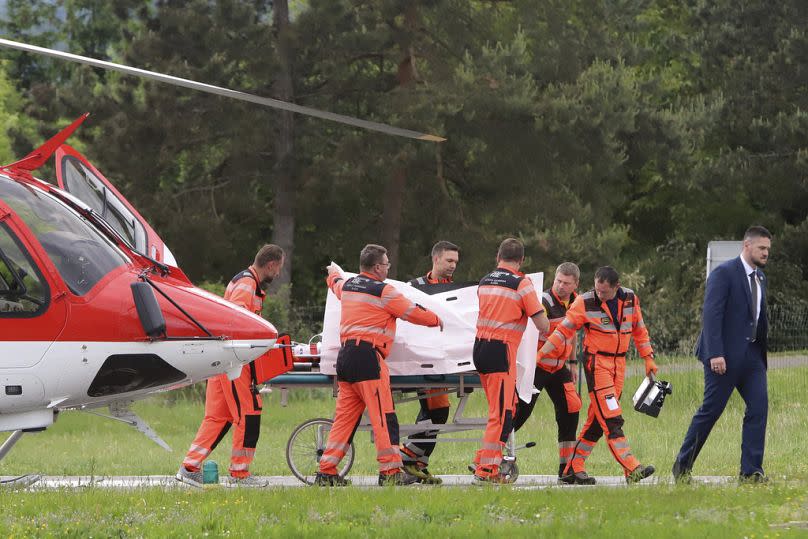'Lone wolf' suspect charged in shooting of Slovakian Prime Minister Robert Fico

Slovakian authorities charged a man Thursday with attempted premeditated murder after he shot Prime Minister Robert Fico five times in the central town of Handlova.
"The attempt on Fico's life was politically motivated", Slovakia's Interior Minister Matuš Šutaj-Eštok said during a news conference on Fico's shooting.
Eštok said the suspect, believed to be 71, was a "lone wolf" and did not belong to any political party but had previously taken part in anti-government protests.
Slovakia's prime minister is no longer in a life-threatening condition after being shot multiple times at point-blank range, according to his deputy prime minister.
However, Deputy Prime Minister and Minister of Defence Robert Kalinak said on Thursday that Fico, who is 59, is "not out of the woods yet" as he continues to recover in hospital.
"[His] condition remains serious and the medical team at the FD Roosevelt University Hospital are performing their best to move towards a positive prognosis," he said during a news conference in Bratislava.
"Unfortunately, I cannot report I have good news because the extent of the injuries sustained is so extensive that the body's response will be very difficult in the days to come."
Kalinak also called the assassination attempt on Fico "premeditated".
'Fico facing a very difficult period'
Slovakia's President-elect Peter Pellegrini said he had only been allowed to speak with Fico for a few minutes "because his current condition really requires peace and quiet without any other external distractions."
Pellegrini wished Fico "a great deal of strength in the struggle ahead of him because he is facing a very difficult period indeed."
The populist leader had been attending a political event in Handlova when the shooting took place, sending shockwaves through the central European country.

Fico is a politically contentious character in Slovakia and rose to prominence on a pro-Russian and anti-US message. In January, he halted aid to Ukraine.
He has previously expressed support for Russian President Vladimir Putin and is currently pushing for a contentious reform of Slovakia's public radio and television services.
Critics worry that he will lead Slovakia — a nation of 5.4 million that is a member of NATO and the EU — to abandon its pro-Western course and follow in the footsteps of Hungary under populist Prime Minister Viktor Orbán.


